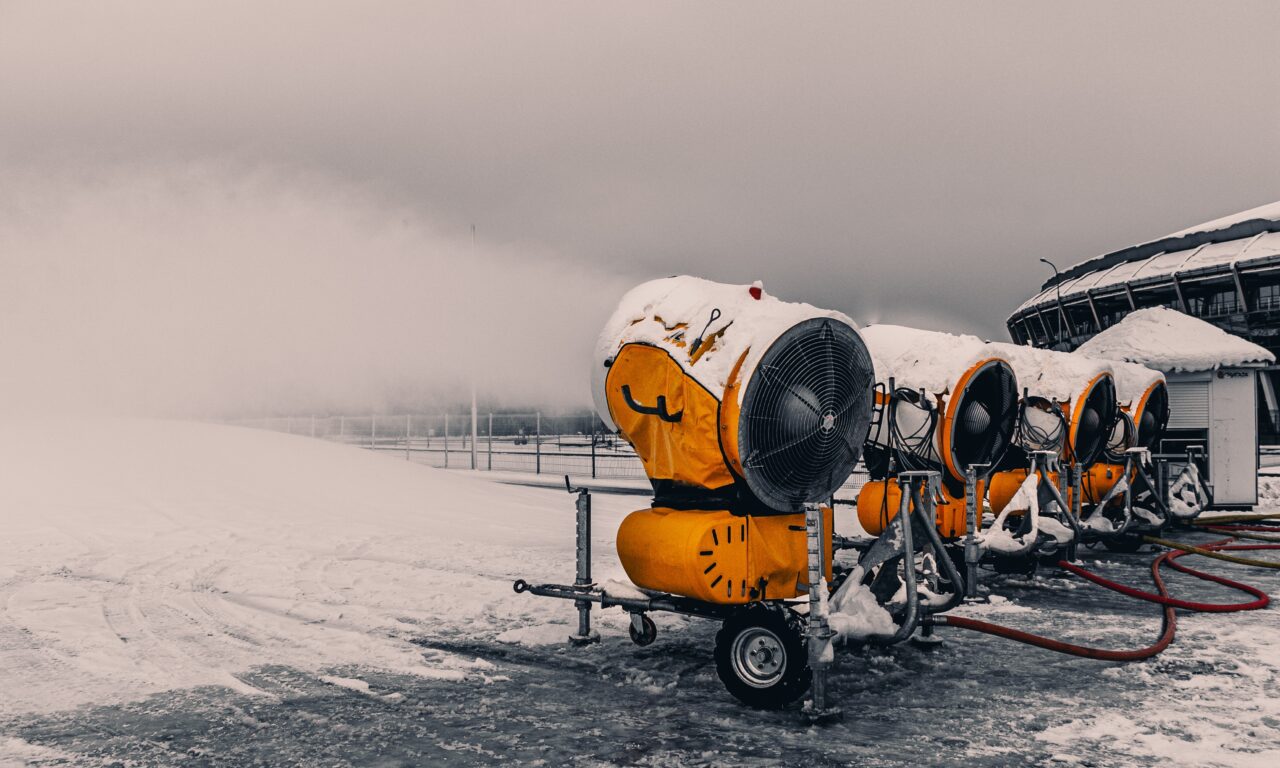Winter sports fuelled by oil: a lesson in inauthentic engagement with scrutiny

As oil and gas companies, airlines, and automotive brands continue to sponsor winter sports events, negative contributions to climate change remain their primary association in the minds of viewers and athletes.
It is not a difficult paradox to understand: the industrial activities of high-carbon sponsors of winter sports are part of a collective that is making the conditions for those sports increasingly challenging. Last month, British Winter Olympian Lizzy Yarnold commented: “At their best, winter sports are a celebration of people enjoying some of the most awesome landscapes on Earth. But the impact of climate pollution is now melting the snow and ice which these sports depend on. Having high carbon sponsors is like winter sport nailing the lid on its own coffin and it needs to stop.”
Yarnold is quite right to point this out. The most damaging reputational action from sponsors is their inability to engage with widely acknowledged contradictions in their campaign. All the while, authenticity and impact remain essential to pushing effective partnerships based on sustainability. Brands that tackle the issue head-on appear to have the greatest success as opposed to those that attempt, through muted responses, to undermine their role in contributing to climate change.
It is not impossible for large, fossil-fuel based companies to continue these sponsorships, but they need to be functional and address the scrutiny levelled against them. They also need to coincide with broader sustainability efforts. Ford’s recent partnership with the Ride London cycle event showcases the opportunities in engaging with public perception on environmental issues. The sponsorship feeds into Ford’s ‘Park the Car’ campaign, encouraging people to walk or cycle short journeys instead of driving their cars. Crucially, when people need to drive, Ford enables them to do so in one of their electric vehicles, thus securing reputational and commercial benefits. You can read more about this partnership here.
In early January of this year, multiple ski resorts in the Alps went without snow after recording temperatures more closely associated with a cool summer. The growing use of artificial snow, in order to widen the window of possibility for winter sports events, is one response to the effect of this swelling change in climate. But while many resorts now depend on this artificial snow, and indeed while the 2022 Winter Olympics in Beijing relied on it almost entirely, the manufacturing requires substantial amounts of energy, water, and chemicals to harden the surface. Several athletes also believe this makes it more dangerous to compete on. Dr Madeleine Orr, of Loughborough University – who last year published a study on how climate change is affecting the Winter Olympics in Beijing – said Volvo and Preem’s continued sponsorship of Vasaloppet (the world’s largest cross-country ski race) is “absolutely greenwashing” and “deeply disappointing.”
Despite the intense criticism pointed at these long-term sponsors, the accused parties have publicly stated their aim to confront the effects of their production processes. Eva Horwing, Vasaloppet’s sponsor manager, has stated “From a Vasaloppet perspective, we choose partners who can help us produce our events as sustainable as possible... These two partners have helped us over the past 10 years to significantly decrease our carbon footprint. For example, by using biofuel in machines as well as introducing electrified cars, buses and lorries.” A spokesperson for Preem further stated that the company is phasing out fossil fuels and aims to complete its sustainable transition before 2035. They added: “From a climate point of view, we know that Preem is a part of the problem, but also a part of the solution.”
Ultimately, these vague pledges do not fully translate to the growing concerns felt by the winter sports community. It would be unfair to say that these companies are doing nothing to offset their carbon footprint. It would be more unfair to say that they are doing enough.
Put simply, sponsors need an authentic campaign rooted in committed activity to offset the inevitable reputational injuries caused by ‘greenwashing.’ Athletes and activists have a growing share of the narrative in these controversies: sponsors must prepare for political engagement at the level of genuine action.








